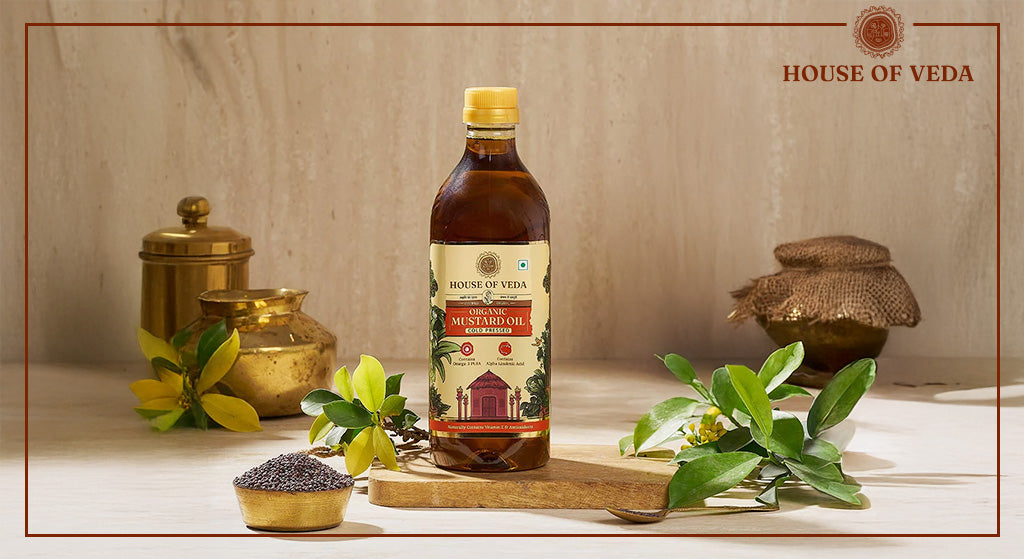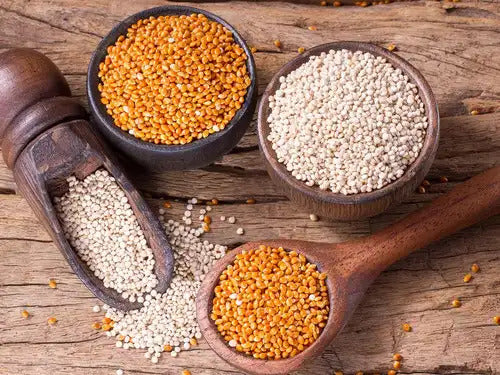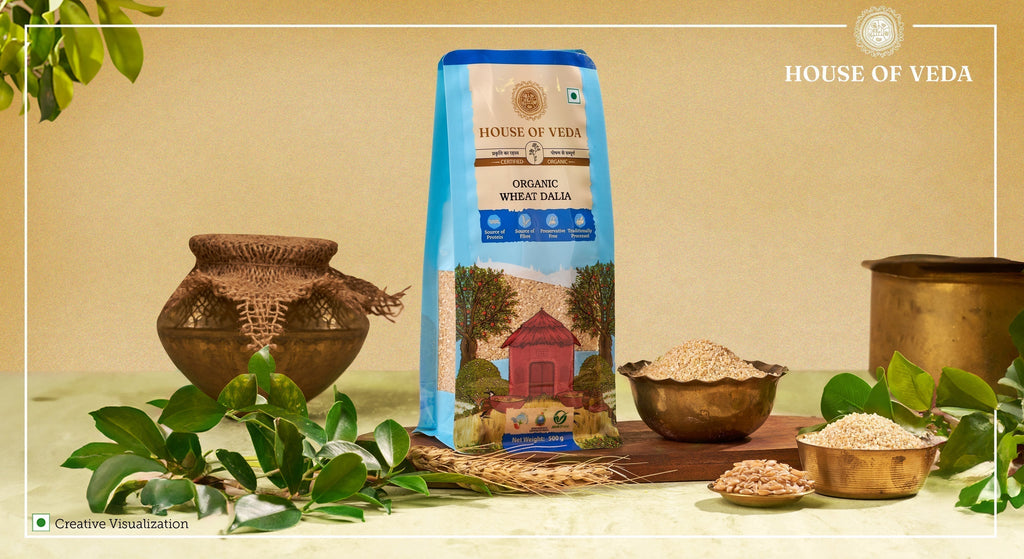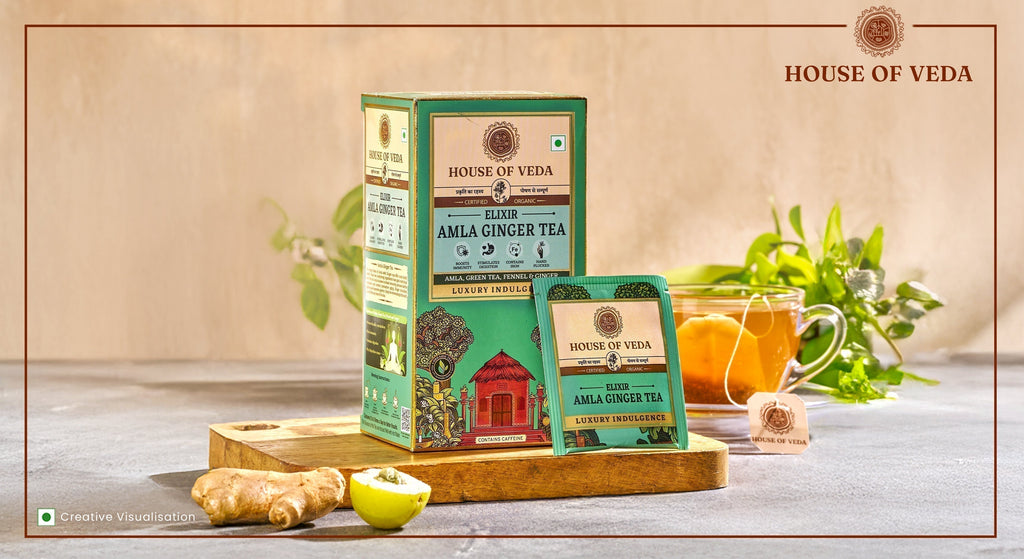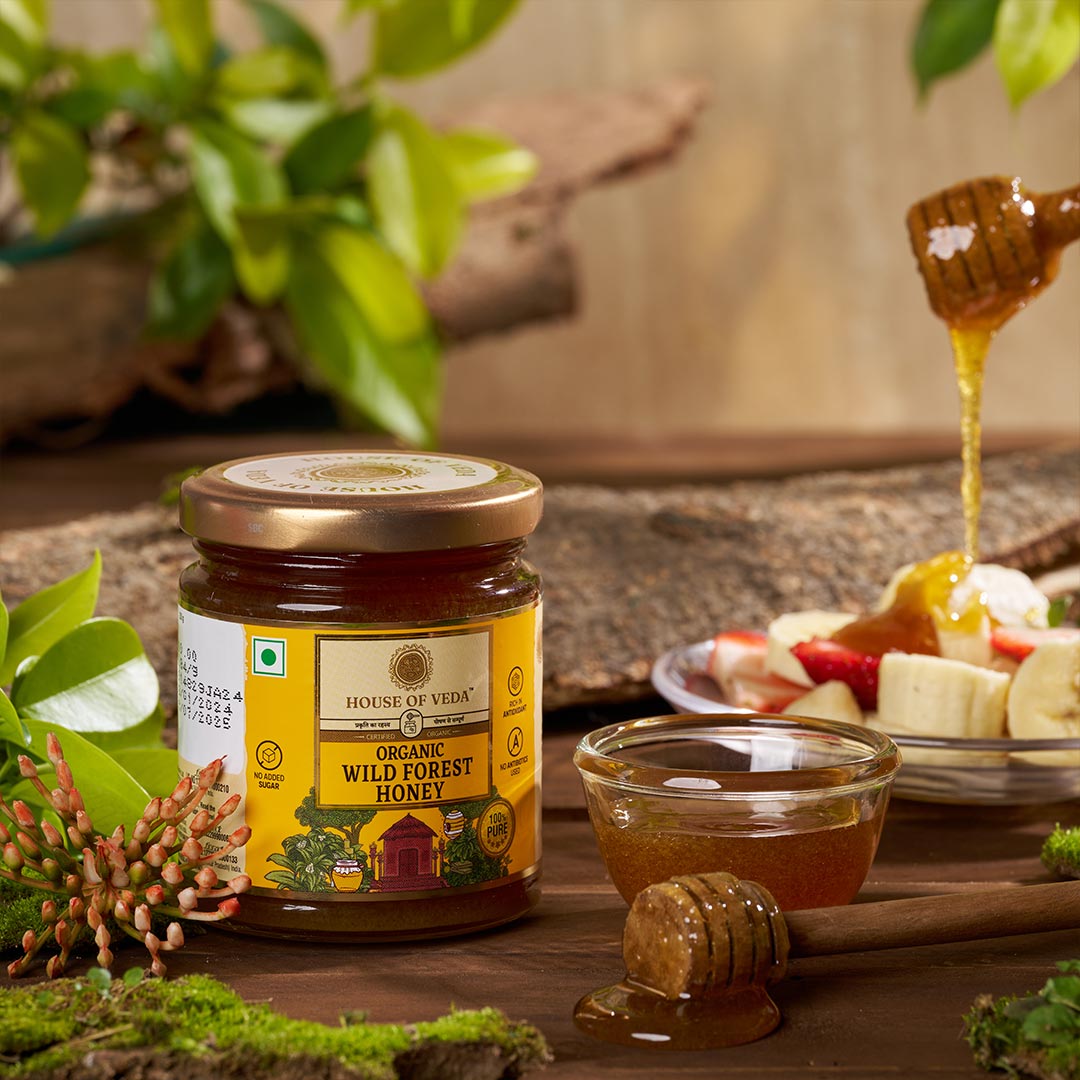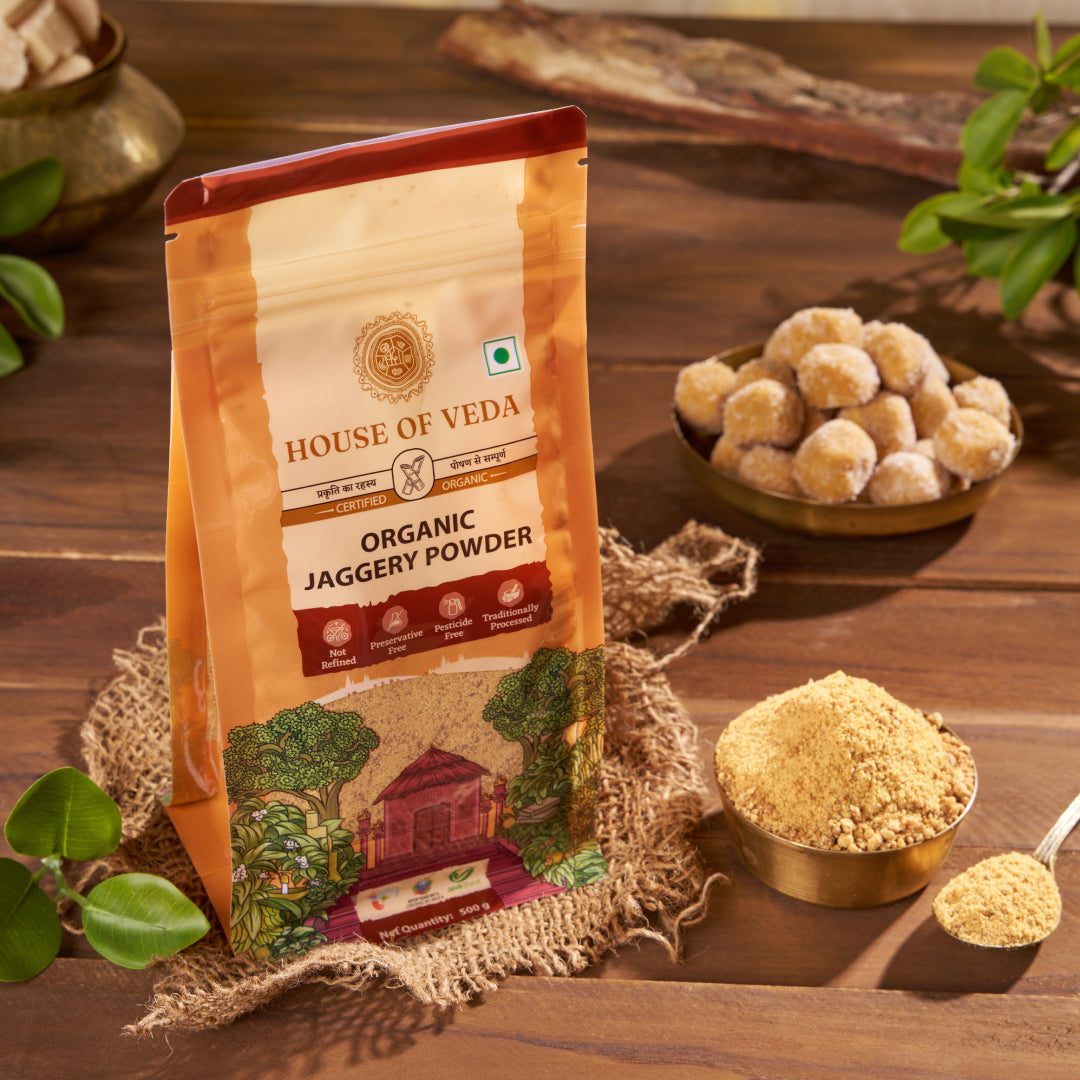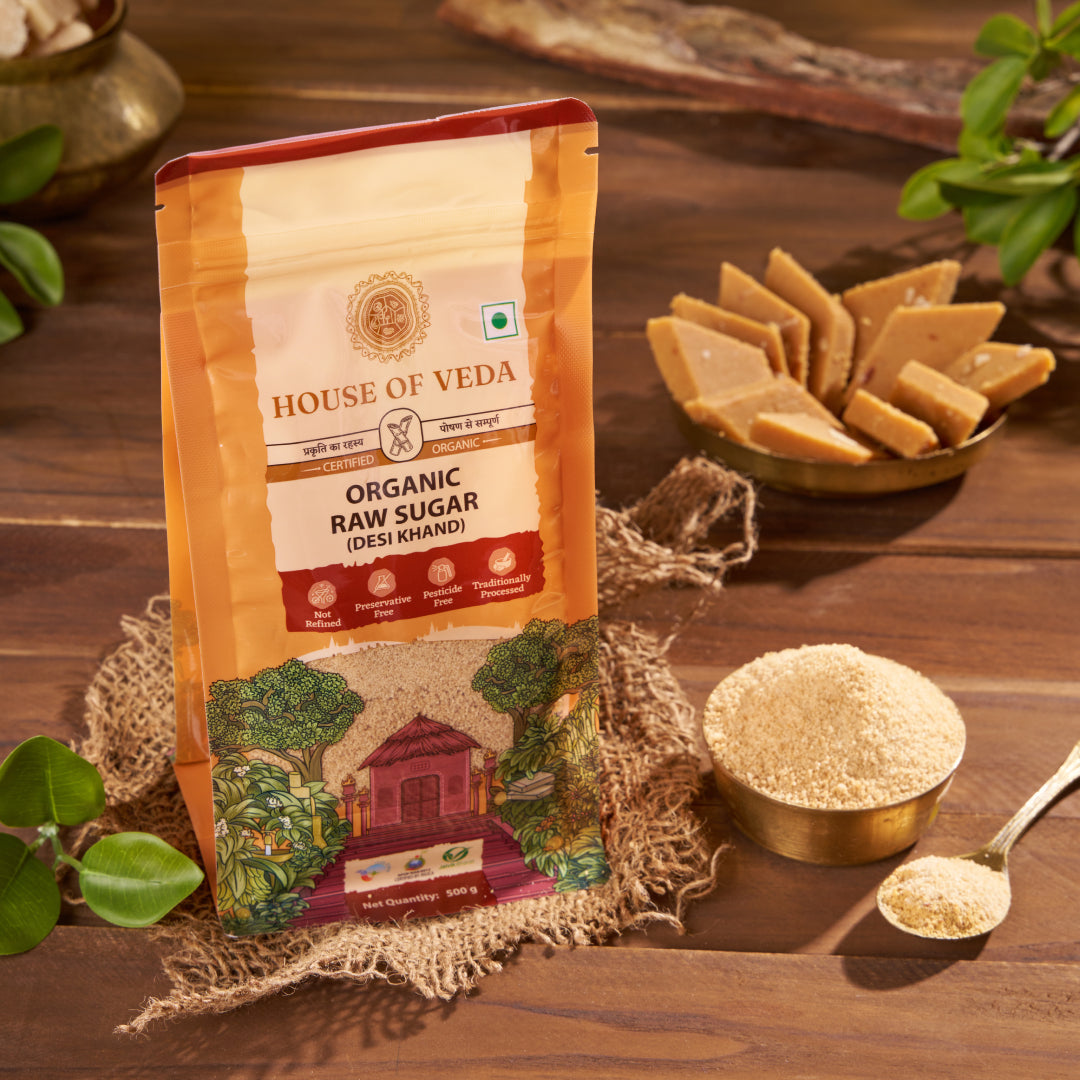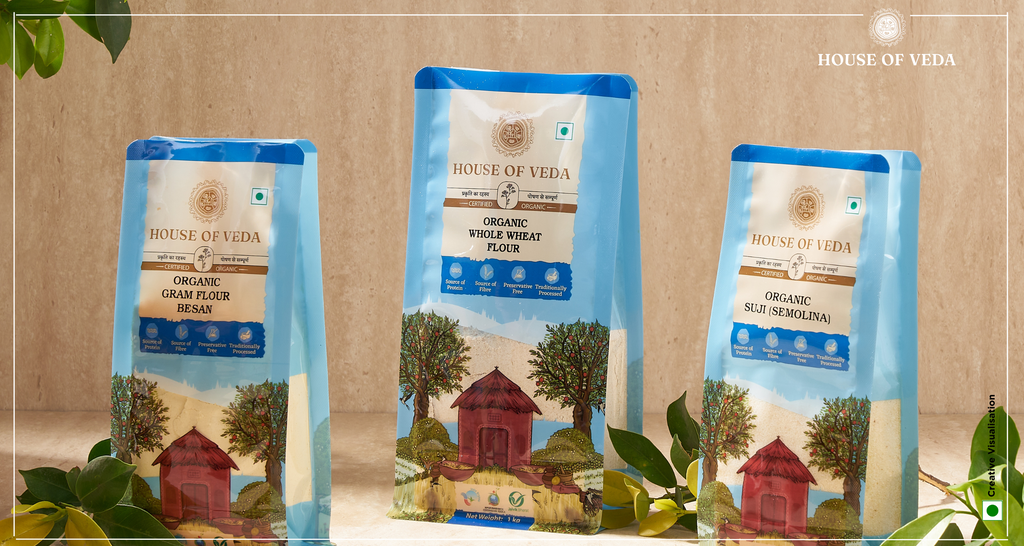
Top Questions About Organic Flour Answered!

Hello there, where nobody knows, but everybody is in love with organic flour. From light as air chapatis for mornings to rich butter biscuits or divine nankhatai, this kitchen tool enhances each and every recipe with nobility.
It's time to banish those flies of doubt and take a tasting tour of the benefits of organic all-purpose flour. Get prepared to learn about the mouth-watering truths and awesome surfaces that are all set to make their entry into your lives.
What Makes Flour Organic?
Organic flour, therefore, is produced from grain, which has not been manipulated through toxic pesticides and is grown in soil enriched only by fertilizers like compost and manure. That is, it is unprocessed and does not undergo artificial ripening processes. Organic whole wheat flour is produced in a way that still retains nutrients as much as possible in the wheat kernel.
What Is the Difference between Organic Flour and Regular Flour?
This seems to imply that when people refer to regular flour, they are talking about all-purpose or plain flour. In the case of flour, which is referred to as bleached, the germ and bran have been part of the flour reduced or even eliminated. This process results in white fine-grained flour, which gives a softer loaf and is less healthy than using coarse stone-ground wheat. The bran and germ portions of the organic flour are not removed; it ferments naturally and contains no chemical agents; all these aspects make organic flours healthier.
Is Organic Flour Healthier?
Organic flour is produced without the use of synthetic methods, ensuring a natural and wholesome product. This approach enhances the grain's development process and results in healthier flour for consumers, as it retains the full nutritional benefits of organic grains, unlike flour made from inorganically treated grains.
Does Organic Flour Contain Additives?
Organic flour is made from grain that is grown without pesticides and in soil enriched exclusively with natural fertilizers, ensuring a pure and wholesome product. Organic grain germinates more efficiently, absorbs more nutrients from the ground, and provides sound and nourishing flour as compared to the conventional one. Growing up, I always appreciated all foods made with organic flour simply because everything made with organic flours tastes better.
Can Organic Flour Help with Digestive Issues?
The following are some major health benefits of organic all-purpose flour as a baking ingredient, which makes many people opt for it over other flours: One of the key nutrients present in organic whole wheat flour is fiber. The outer layer of bran is rich in dietary fiber, and it acts as a laxative and a good agent to level blood sugar. Another example is that organic whole wheat flour has three times the fiber content than the refined flour, also known as white flour.
Does Organic Flour Taste Better?
Numerous Indian bakers and home cooks hold the belief that organic flour has a superior taste. Organic flour maintains its original flavors and nutrients as it is manufactured without the use of artificial pesticides and fertilizers. This leads to a more wholesome and flavorful taste in traditional Indian dishes such as rotis, parathas, and baked goods, elevating the overall flavor and quality of the food.
How Should I Store Organic Flour?
The bags used for packaging flour are made of transparent thin that enable the removal of any moisture that may have been left after the process of milling. It is perfect for recycling; however, they are not very good protectants against such threats as, for example, moisture and heat, which in turn contribute to the spoiling of the product. So once you get your flour home, dress it in its anti-spoilage armor: Any meal prepared by a restaurant should be stored airtight and placed in a plastic container, bag, or wrap.
Is Organic Flour Gluten-Free?
Our ingredients are carefully grown using organic methods and expertly packaged on our premises. Our products are certified as organic and free from contaminants, pesticides, and genetically modified organisms.
Where Can I Buy Organic Flour?
House of Veda can assist you with that! The flours used in our company are certified and have many nutritional benefits. This meant that we are known to provide our customers with fresh and pure flour. Our flours are especially suitable for a wide range of Indian dishes, including rotis, parathas, naans, puris, and baked goods like biscuits. These have high protein and yield great taste. Of course, it is possible to state that our organic flours might be your ideal match.
Switch to House of Veda's Organic Multigrain Flour for Better Health.
Check out the world of organic flour with House of Veda right now! Our certified organic flours lend a touch of nobility to every product, whether you're making light puris or ladoos. Select from the available products that include; organic wheat flour, multigrain flour premix, and many others that are rich in nutritional values and taste.
FAQs
How important is organic flour?
In the modern world, as people are getting conscious of eating healthy products, it becomes important to choose the right types of food products to consume. Such a decision that has really had Herb's walls in preference recently is the usage of organic flours. In a world with constant shifts and improvements in the population's diet, taking quality organic flour is evidence that the world is moving toward a healthier and more sustainable dietary system.
What is the healthiest organic flour?
Jowar or Sorghum, an ancient Indian grain that is consumed almost in all Indian homes as a cereal, is a powerhouse of nutrients once prepared as flour. It contains protein, carbohydrates, and dietary fiber, is crucial in growth and development, and has low heat generation.
Where does organic flour come from?
Organic flour is a product that is made based on wheat plant, and is categorized as organic food. Milling is the process of breaking down the grain into its three components and pending their interphase on the rollers.
What is the shelf life of organic flour?
The reason why flour has a long shelf-life is that its quality significantly degenerates after 3-8 months. It can be kept even more compressed for a longer time by sealing it properly before refrigeration or freezing it.
What makes flour expire?
From this, we can deduce that the natural oils present in flour can spoil. According to this reasoning, the greater the fat content of the flour, the faster it goes. Flavor enhancers such as salt or baking powder do not spoil but will deteriorate and hence should not be added to preserve food's freshness for long.
Numerous Indian bakers and home cooks hold the belief that organic flour has a superior taste. Organic flour maintains its original flavors and nutrients as it is manufactured without the use of chemical pesticides and fertilizers. This leads to a more wholesome and flavorful taste in traditional Indian dishes such as rotis, parathas, and baked goods, elevating the overall flavor and quality of the food.


